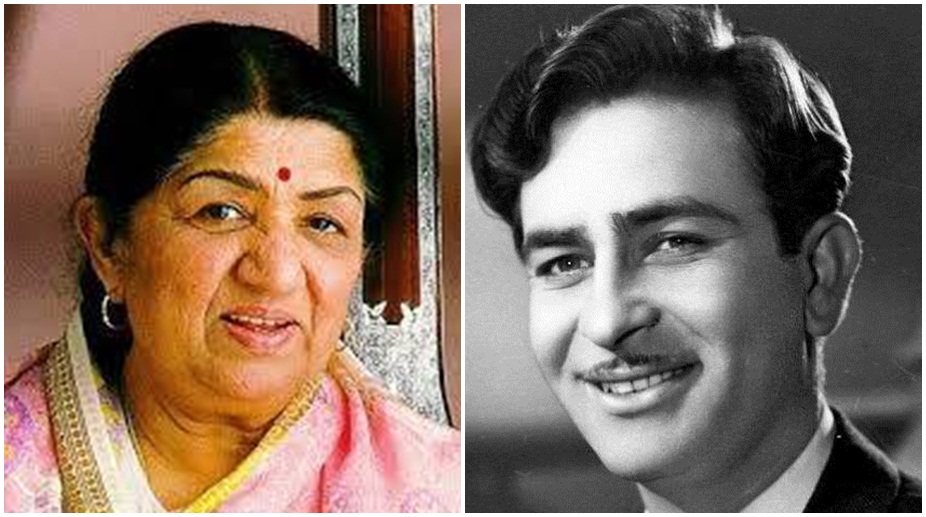Salman Khan’s ‘Sikandar’ teaser promises pulse-pounding action
The awaited teaser of Salman Khan’s ‘Sikandar’ is finally out and fans can’t keep calm! The high-octane clip promises a stunning actioner.

Raj Kapoor, Lata Mangeshkar (Photo Credits: Facebook)
It was sometime in 1948 I was recording a song at the Famous recording studio for music director Anil Biswas. At that time, Raj Kapoor had a very small office on the second floor in the same building. Anil Biswas contacted him and asked him to come down to the studio and listen to my voice. I sang and he listened. There was no reaction. He listened and left! Next day, Anil Biswas called and said that Raj Kapoor has called you at the Mahalaxmi office.
In Kohlapur, I had seen Prithviraj Kapoor’s film Sikandar fifteen times. I was a great fan of his. He was tall and so handsome. I thought it might be a good opportunity to meet my favourite star’s son, Raj Kapoor.I accepted the invite and went. Raj Kapoor was sitting on his desk in his office. I sat across the table. He said ‘I want you to sing for my film,’ and asked me what that would cost him. I responded by saying any amount that he gave me would be acceptable. He replied by offering me rupees 500 for the same. At this time, Ram Ganguly was the music director and both Shankar and Jaikishen were music arrangers. They all worked together at Prithvi Theatres.
Advertisement
Shankar was on the tabla and Jaikishen on the harmonium. They sang and taught me the song Jiya bekarar hai for the film Barsaat.
Advertisement
It was after this recording that Raj Kapoor took the decision that the music director for the film would be Shakar-Jaikishen and not Ram Ganguly. This was the historic decision, with Shailendra and Hasrat Jaipuri handling the lyrics, that created the evergreen music of R.K. Films.
I also recall Raj-ji cautioning Jaikishen. He was concerned about my ability to sing commercial film songs, being a classical singer. Hearing this I was naturally very upset. I was new and had not worked in the film industry. I sang all the songs in Barsaat. It was very gratifying for me to hear of a request from Raj saab for a bhairavi alaap in a certain song in Barsaat. I sang it and he loved it and was very happy. The music of this film was very successful.
Later, for the following films, he would leave the details of the melody to me. But he always wanted an alaap which would touch the hearts of millions of people.
I recall a time when we were recording the famous song in Awara, ‘Ghar aaya mera pardesi’, with Manna Dey accompanying me. We reached the recording theatre. Shankar and Jaikishen made us learn the lyrics and the melody of the song, but Raj saab, who came later, rejected our entire day’s work. He said to Jaikishen, ‘I don’t want a popatiya song!’ He changed the whole song. He also added an alaap to the song! All this went on till 3 a.m. and only after it was done did he say, ‘Now let us eat!’ He had arranged food for the entire unit. I remember the entire team sat in the middle of the road and ate. There was almost no traffic those days, particularly at 3 a.m. A sheet was spread on the road where we all ate and left for home.
This was his way of working…
I was also bad tempered. I used to fight. I was recording with his son Randhir Kapoor for his film Kal Aaj Aur Kal. Raj-ji had come for the recording. There, he told me that he was soon starting his next film called Satyam Shivam Sundaram for which he wanted my brother Hridaynath Mangeshkar to score the music. I replied to him saying that I would ask my brother. I managed to persuade my brother who was not really interested in scoring scores for films…
I left for my US trip where I was shocked to hear from Mukesh, ‘Hridaynath ki picture gayi (Hridaynath has lost the film)!’ Hridaynath called and said that he had accepted the film because of me but the newspapers were writing otherwise. He was offended and embarrassed. I was very angry with Raj-ji. On my return, I called him and said, ‘why did you do this?’ I had persuaded him because you had asked me to!’
(Extracted from Raj Kapoor: The One And Only Showman presented by his daughter Ritu Nanda, with permission from HarperCollins India)
Advertisement